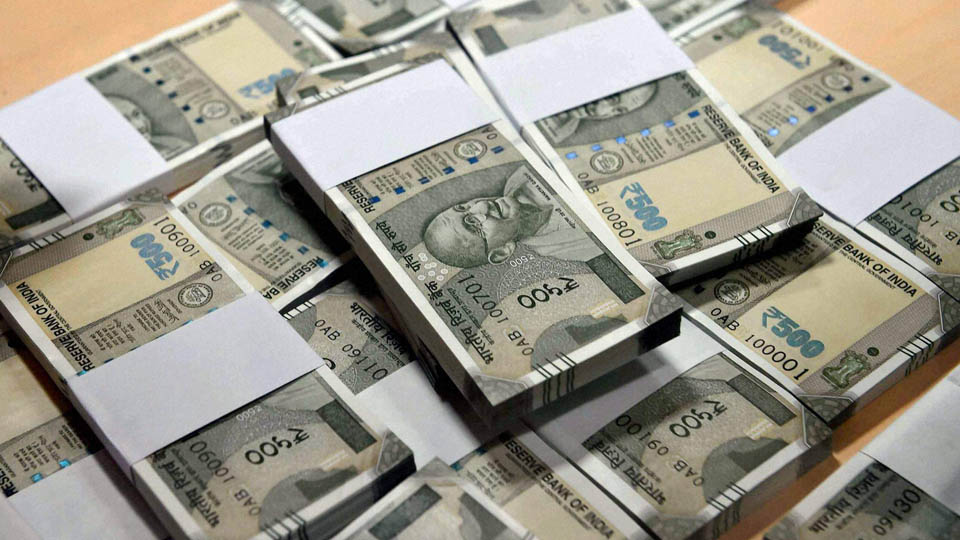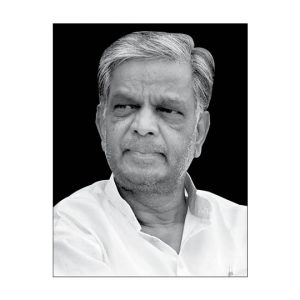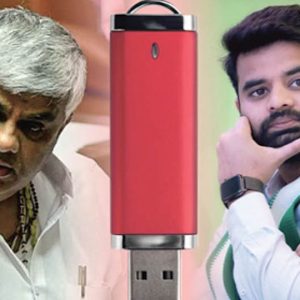By Prof. M. Umapathy, Retd. Professor and Head, Department of Political Science, University of Mysore
(Continued from yesterday)
In the first General Elections in 1952, there were 17 crore voters. The government expenditure on it was said to be Rs. 17.8 crore. In the General Elections of 2019, the number of voters were 90 crores. The amount of expenditure in this election by the candidates and parties together was calculated to be Rs. 60,000 crore. In the current elections-2024, the number of voters is 96.8 crore. The administrative cost estimated by the EC for conducting the elections is Rs. 520 crore (The Hindu dated 8th April 2024 p6).
The amount of expenditure by candidates and political parties naturally is estimated to exceed the amount of Rs. 60,000 crore of the 2019 elections. While the money power of political parties is a secret, the amounts collected through E-Bonds, this time, have indicated the amazing imbalance in it and the worrisome absence of a level playing field in this.
The biggest problem in our electoral and party processes is, the uncontrolled money power. It is uncontrolled because it is primarily hidden money, contributed by private corporates or individuals with quid-pro-quo agendas. Private monetary contributions to political parties, by cash or cheques or bonds, white or black, open or secret always comes with hidden agendas and interests.
The Supreme Court judgment on E-Bonds has thrown light on the crime. It suggests no alternatives. Neither is it the duty of the Courts. The public opinion and Parliament must enact laws providing alternative ways of political funding.
Below are some suggestions in this direction. The basic belief underlining these suggestions is that for such fundamental democratic functions undertaken by political parties and electoral systems ‘Public Funding’ or ‘State Funding,’ replacing the present private funding is the solution.
State Funding: A Democratic Alternative
State Funding is a done thing in the democratic world. Much data and arguments for and against are available on it, in the handbook Funding of Political Parties and Election Campaigns, published by IDEA in 2014.
In India, the Inderjit Gupta Committee 1998 was the first to endorse State Funding with two limitations: a) It should be given only to recognised political parties and not to independent candidates and b) It should be given in kind in the form of certain facilities. The Law Commission of India Report 1999 even recommended total State funding as desirable along with prohibition of funds from other sources. In addition, it recommended appropriate statutory provisions to effectively regulate the structure and behaviour of political parties. These included laying down internal democratic structures for political parties and compulsory maintenance of party income and expenditure accounts and their audit. Similar regulations were also recommended by the National Commission to Review the Workings of the Constitution 2001.
In India, at present, The Representation of the People Act, 1951 and the Election Commission of India are not empowered adequately to control the political parties. The Model Code of Conduct is not a statutory provision. Where violations occur and complaints are lodged with the Election Commission, it ends only with a warning, directions, and at most, fines. The political parties have least fear of being de-recognised. Political parties with their mountains of hidden money-power, influential political power and the ruling parties with governmental administrative, legislative and treasury power have become laws unto themselves with their ‘high commands’ issuing whips and commands.
In this background, the following three suggestions for State Funding of political parties and Election Commissions emerge:
1) Creation of a National Political Fund.
2) Establishment of a National Political parties and Election Commission.
3) Statutory provisions and finances to provide equal public opportunities for electoral campaigning.
First, a statutory or constitutional National Political Fund has to be created. It can be built through,
(i) ‘Democratic tax’ or surcharge to be paid by the public.
(ii) A fixed portion of all corporate social sector funds (Corporate Social Responsibility fund).
(iii) Any voluntary and open contribution by any organisation or individual.
Second, to administer this fund and to effectively control political parties and election campaigns, a Constitutional National Political Parties and Election Commission has to be established. Such an organisation with enough teeth can manage the onerous democratic job of facilitating and controlling Political Parties and Election Campaigns.
Third, statutory provisions and finances have to be arranged to provide support in kind, providing equal opportunities for campaigning to all political parties. These facilities in kind may include. Constituency-wise ‘election weekly’ or suitable print media communication with equal opportunity for all political parties.
Equal time on public radio and TV for party campaigns.
Mohalla-wise periodic public campaign meetings attended by all party candidates to present their campaigns.
Compulsory voting is achieved through incentives and fines, by providing their daily wage to wage earners for voting and by punishing non-voting rich people to pay a higher percentage of income tax or any other tax.
Such provisions managed effectively by the Constituency-wise or District-wise Election Commission would reduce the cost of elections. Reduced costs will be less burdensome on the public exchequer. But it requires simultaneously prohibition of hidden, private campaign expenditures by candidates and political parties. These would promote level-playing field and the health of our Democracy.
We Indians have many reasons to be proud of our Democracy, which is the biggest Democracy of the world. But, Democracy is a very civilised and delicate political process. It has improved through history. It is time now to improve it further to save it from becoming a Cryptocracy (rule by thieves) or Lootocracy (rule by looters) or even a mere Plutocracy (rule by the rich).








Recent Comments